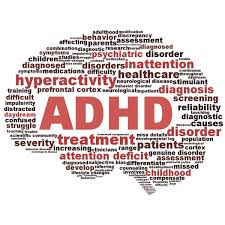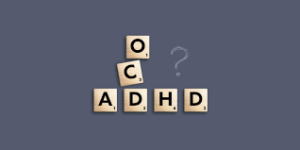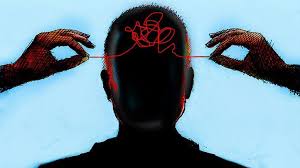If you are living with ADHD or OCD, you know that these conditions can impact your life in many ways. Both disorders can cause problems with focus, organization, and attention span. In addition, OCD can cause intrusive thoughts and anxiety, while ADHD can lead to impulsiveness and hyperactivity. These conditions can make it difficult to live a normal life. In this blog post, we will discuss the different ways that ADHD and OCD can affect your life. We will also offer advice for coping with these disorders.
Contents
What Is ADHD?

ADHD is a neurodevelopmental disorder marked by difficulty concentrating, hyperactivity, and impulsivity. People with ADHD often have trouble paying attention, controlling their emotions, staying organized, and completing tasks. They may also be prone to fidgeting or talking excessively.
Adults with ADHD tend to have difficulty managing their time, staying organized, and meeting deadlines. They may also struggle with relationships due to difficulty controlling emotions or impulsive behavior. Difficulty concentrating can make it difficult to complete tasks at work or school, leading to problems with productivity.
What Is OCD?
Obsessive-Compulsive Disorder (OCD) is an anxiety disorder characterized by intrusive thoughts that cause distress and a compulsion to engage in activities to reduce the distress caused by the thoughts. People with OCD often experience obsessive thoughts about orderliness, cleanliness, perfectionism, or safety which can lead them to engage in repetitive behaviors such as counting objects or washing their hands repeatedly.
People with OCD tend to focus on small details and become easily frustrated when things don’t go as planned. This can lead to feelings of guilt, shame, or anxiety which can interfere with daily life activities such as maintaining relationships, going to work or school, and completing tasks. The intrusive thoughts associated with OCD can cause distress and lead people to engage in compulsive behaviors that take up a large amount of time each day.
ADHD and OCD: Common Link Between Them

The two conditions of Attention Deficit Hyperactivity Disorder (ADHD) and Obsessive Compulsive Disorder (OCD) are both neurological disorders that can have a major impact on how you live your life. While the two may seem quite distinct, there is a lot of overlap between them. People with ADHD can also experience symptoms associated with OCD, such as perfectionism, obsessive thoughts or behaviors, and difficulty managing emotions. Likewise, people with OCD may struggle with attention deficit issues.
According to the American Psychiatric Association, ADHD is “a persistent pattern of inattention and/or hyperactivity-impulsivity that interferes with functioning or development.” People with ADHD may find it difficult to focus on tasks, be forgetful, or struggle to stay organized. They may also experience restlessness or impulsivity.
OCD is characterized by intrusive thoughts, obsessions, and compulsions. People with OCD often feel compelled to perform certain rituals or behaviors over and over again—even if they don’t want to—in an attempt to reduce their anxiety. These can range from something as simple as handwashing to more complex activities such as counting items in a specific order.
The link between these two conditions can be particularly strong in children, who may have difficulty regulating their emotions and behavior due to both ADHD and OCD. This can result in difficulties with impulse control, social interactions, and performance at school.
Any Differences Between ADHD and OCD?
The most obvious difference between ADHD and OCD is that ADHD is a behavioral disorder, while OCD is an anxiety disorder. While both disorders can interfere with one’s life, they do so in different ways.
When it comes to ADHD, symptoms tend to affect the ability to focus and pay attention. This often results in difficulty completing tasks or staying on task. Additionally, those with ADHD may have problems sitting still, being organized, controlling emotions, and following instructions.
In contrast, those with OCD experience intrusive thoughts or behaviors that cause anxiety which they feel compelled to complete to relieve themselves of said anxiety. Common examples include repetitive behaviors like hand washing or checking things multiple times; repeatedly thinking about events in the past; excessive organizing or cleaning; and difficulty trusting others.
The impacts of ADHD and OCD can be quite different, as well. Those with ADHD often have difficulty learning in school or maintaining relationships with friends and family. They may also feel overwhelmed, frustrated, and impulsive due to their inability to concentrate on the tasks at hand.
Meanwhile, those with OCD typically have a hard time managing daily life activities as they are so consumed by their thoughts and behaviors. This can lead to feelings of guilt or shame, depression, low self-esteem, poor performance in school or work, and social isolation.
Treating ADHD and OCD

Treating Attention Deficit Hyperactivity Disorder (ADHD) and Obsessive Compulsive Disorder (OCD) can be a challenge. While both involve changes in behavior, they require different approaches to effectively manage symptoms.
ADHD is generally treated with medications such as stimulants that address the underlying neurochemical imbalance responsible for the condition. In addition, behavioral therapies can help patients learn better self-control. Working with a therapist can also help individuals develop coping strategies that can help them manage their symptoms more effectively.
OCD requires a multi-faceted approach to management and treatment. Treatment should focus on both the physical and psychological aspects of OCD, including :
Cognitive Behavioral Therapy
Cogntive behavioral therapy (CBT) is a type of psychotherapy that focuses on changing thought patterns and behaviors associated with OCD. The goal is to help people become less anxious in their daily lives, as well as to reduce compulsions and obsessions.
Exposure Therapy
Exposure therapy involves exposing the person to their feared object or situation to desensitize them and decrease anxiety over time. This may involve imagining, visiting/experiencing, or talking about the feared stimulus.
Medications
Various medications can also be used to treat OCD including anti-depressants and anti-anxiety medications. Selective serotonin reuptake inhibitors (SSRIs), for example, are commonly prescribed to help manage the obsessive thoughts and compulsions associated with OCD.
Overall, managing ADHD and OCD can be a challenge but learning about the different treatment options available can help individuals get the support they need to effectively manage their symptoms. With dedication and effort, people can lead healthier lives despite these conditions.
Can You Prevent ADHD and OCD?
Preventing ADHD and OCD is not always possible. The causes of these conditions are largely unknown, although there is some evidence that genetics or environmental factors can play a role. However, there are several steps you can take to reduce the risk of developing either condition. These include:
Getting Regular Exercise
One of the best ways to reduce the risk of developing ADHD and OCD is by getting regular exercise. Exercise can help improve concentration, social skills, and self-esteem. Studies have shown that physical activity can also help regulate moods, which can be beneficial for people with either condition.
Eating Healthy Foods
Eating a nutritious diet with plenty of fruits, vegetables, whole grains, lean proteins, and healthy fats is important for overall well-being. Also, Eating a balanced diet may help avoid certain deficiencies that could trigger symptoms of ADHD or OCD. It can also provide your body and brain with the necessary energy it needs to function properly.
Developing Good Sleep Habits
Getting adequate sleep is crucial for the proper functioning of both physical and mental health. Also, getting good sleep can help regulate moods and reduce symptoms of ADHD and OCD. A good routine before bedtime such as avoiding screens and caffeine in the evening, having a relaxing bath or shower, and reading a book can all help improve your sleep.
Maintaining Healthy Relationships
Having strong relationships with friends and family is important for mental health. Being around supportive people who understand your condition can make it easier to manage symptoms of ADHD or OCD. Additionally, maintaining healthy relationships can also provide additional sources of motivation that could help you reach your goals.
Having a Positive Mindset
Having a positive outlook and attitude can help reduce the symptoms of ADHD and OCD. Focusing on the positives in life and not dwelling on what you cannot control or do can help boost your mood, self-esteem, and motivation. It also helps to set realistic and attainable goals. Taking small steps toward success is better than expecting too much from yourself at once.
Although these steps may not prevent ADHD or OCD, they may be beneficial in helping to manage the symptoms associated with either condition. It is important to remember that everyone reacts differently to different methods. So it is best to speak with your doctor or therapist about the most effective ways to manage your condition.
Conclusion
ADHD and OCD are two distinct mental health conditions that can have a significant impact on your life. It’s important to understand the differences between them so you can find the right treatment options for yourself or your loved one. Both ADHD and OCD require ongoing management and support, but with proper diagnosis and treatment plans, individuals can lead successful lives despite the challenges of these disorders.
With patience, determination, and dedication to self-care, those diagnosed with either condition can live fulfilling lives. No matter what mental health challenges you may face, remember there is help available; reach out for support when needed.
For more information and guidance, please contact OCDMantra. OCD is a mental health disorder characterized by obsessions and compulsions. If you have any queries regarding OCD treatment, ERP therapy experienced therapists at OCDMantra can help: Book a trial OD therapy session.


